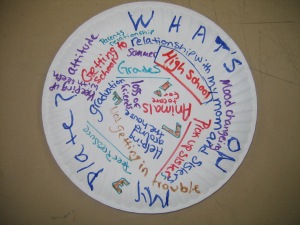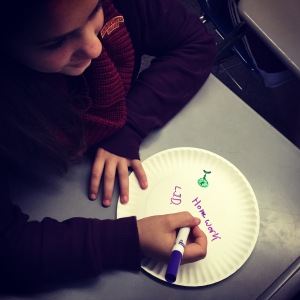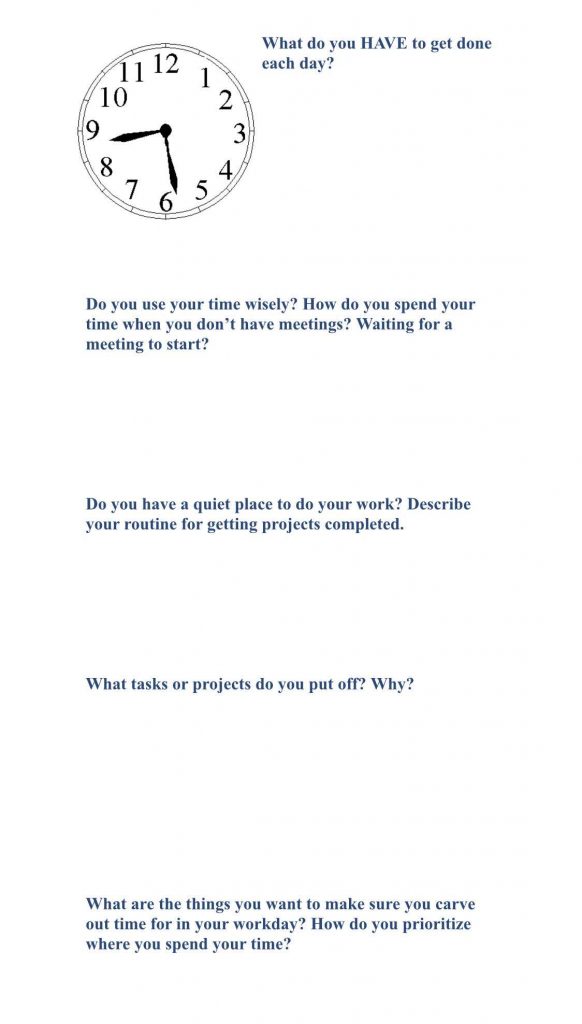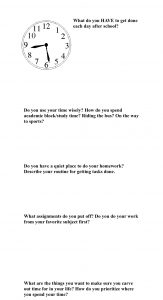Dec 16, 2019 What’s on Your Plate? Time and Stress Management Reflection Activity
 Over the years, this article has been one of my most popular blog posts. I originally shared the “Full Plate Time Management” lesson example in my Inspired Educator, Inspired Learner book, and in a 2014 blog post. Since that time, numerous readers have shared that they have successfully used this activity and reflection prompt to explore time and stress management, coping skills, goal-setting, juggling multiple responsibilities, planning, and prioritization strategies with both youth and adult groups.
Over the years, this article has been one of my most popular blog posts. I originally shared the “Full Plate Time Management” lesson example in my Inspired Educator, Inspired Learner book, and in a 2014 blog post. Since that time, numerous readers have shared that they have successfully used this activity and reflection prompt to explore time and stress management, coping skills, goal-setting, juggling multiple responsibilities, planning, and prioritization strategies with both youth and adult groups.
Many educators and counselors have emailed me to ask for the Time Management reflection sheets mentioned in the original post and book. During this busy and often stressful time of year I thought it would be appropriate to repost the article along with updated examples of the time management reflection prompts. One of the reflection sheets comes from my work with middle school students. The second targeted for adult groups was inspired by input from one of my readers, Heidi Boehm, who adapted it for use with medical professionals. Hopefully, you will find this a useful activity to promote meaningful reflection upon self-care, healthy behaviors, decision-making, and coping skills. Help your groups end 2019 on a positive note and begin 2020 with some new ideas and practices.
Time Management “Full Plate” Lesson
Purpose/Focus: Social and Emotional Learning, Goal-Setting, Coping Skills, Stress Management, Self-Regulation, Reflection
Directions:
 •To spark thinking and create context, use a reflective entry task to give participants 5 minutes to reflect and discuss personal goals through an engaging hook activity such as the computer keyboard keys or postcard metaphor activity.
•To spark thinking and create context, use a reflective entry task to give participants 5 minutes to reflect and discuss personal goals through an engaging hook activity such as the computer keyboard keys or postcard metaphor activity.
•Next, involve the group in a short, interactive activity/energizer to plant seeds for conversation:
–Invite participants to walk around the room and greet each other.
–Ask them to focus on one spot in the room while they walk and greet.
–Next, ask them to pat their head as they walk and greet.
–Then add humming a tune to the tasks.
–Finally, give them a math problem to figure out in their head as they walk around the room,
meet and greet, focus on one spot, pat their head, and hum.
•Ask group members to stop and invite them to form a circle and share one word to describe the experience. This usually leads to some meaningful discussions on multi-tasking and the challenges and the stress of managing multiple responsibilities.
•Discuss the analogy of “having a full plate” to represent one’s responsibilities and commitments. Ask participants to think about what is on their plate i.e., their responsibilities, work or school tasks, self-care, stressors, as well as their hobbies and the things they want to spend time doing.
•Hand out paper plates and markers. Ask participants to decorate the paper plates with symbols/words that represent the obligations, tasks, and interests that are on their plate.
•Give the group plenty of time for this as they will talk and reflect with each other as they draw/write.
•Invite group members to share what some of (or at least one) of the items that are on their plates. They will find many commonalities, and at the same time, learn about some of the unique stressors, responsibilities or interests of their peers. This opens a discussion on how to handle multiple responsibilities and how the group can support each other.
• I hand out a reflection sheet/journaling prompt with questions such as:
What do you have to get done each day?
Do you use your time wisely?
Do you have a quiet place to do homework/office work?
What assignments do you put off? Do you work on your favorite subject/task first or last?
•A group discussion on responses and ideas generated from these questions can be an effective way for peers to support each other with ideas and suggestions.
• As an extension of the activity, I often offer a time log worksheet that can be used by participants for a few days to continue reflection on how they are using their time.
If you would like full copies of the reflection sheets or would like to share ideas for expanding the reflection questions, or activity variations you have found useful, please email me at jen@experientialtools.com
Excerpt from Inspired Educator, Inspired Learner by Jennifer Stanchfield 2014 Wood N Barnes Publishing Company.





No Comments